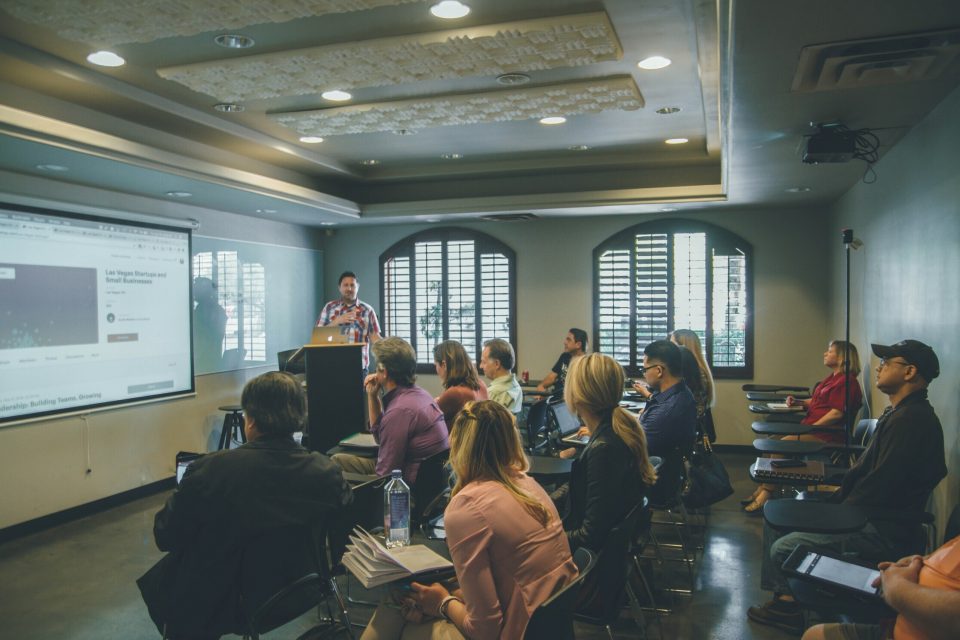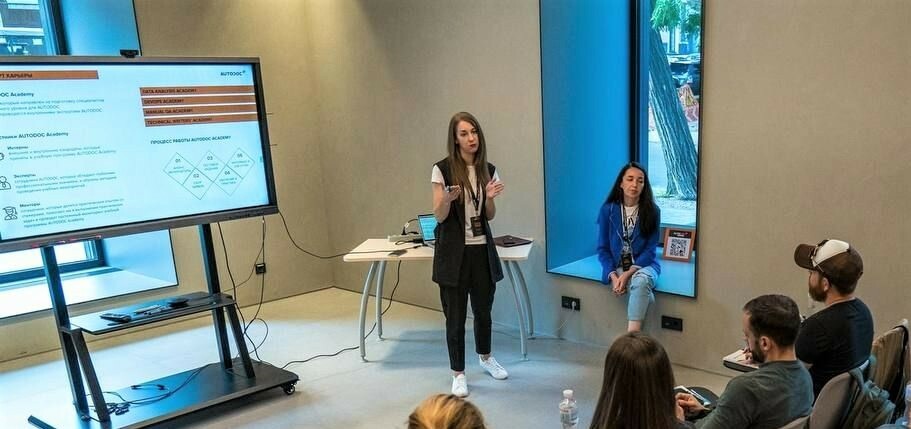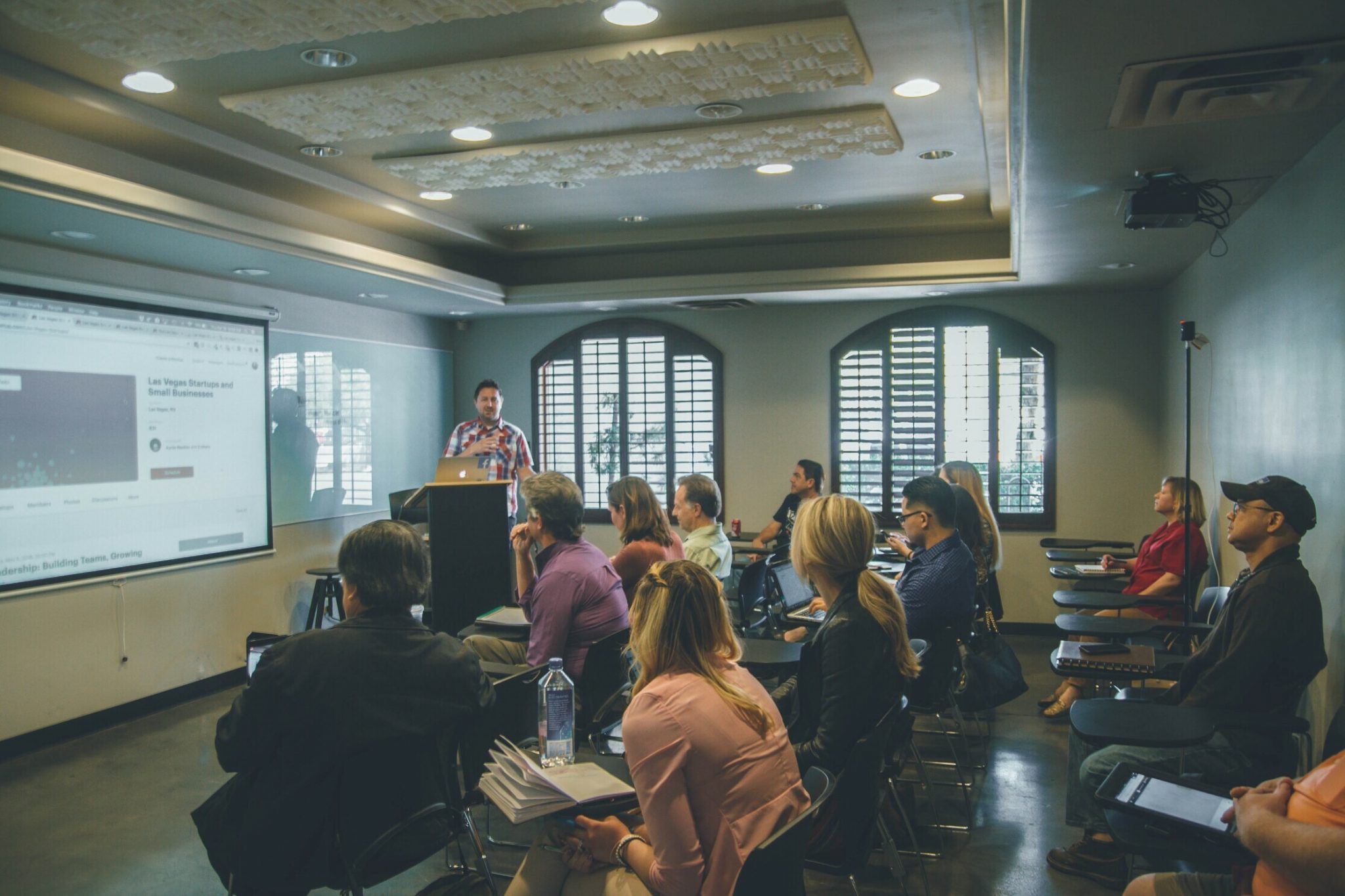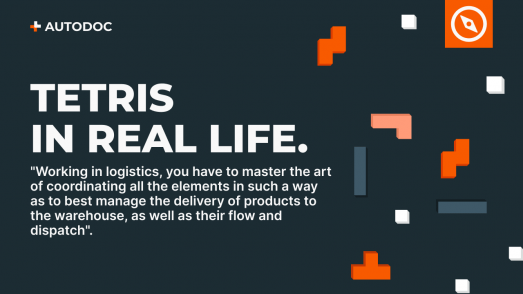Education As A Determining Factor For Career Development
The development of our employees is a st...

The development of our employees is a strategic priority for the company. Processes, technologies and tools change and evolve so rapidly that only continuous training makes it possible to maintain a leading position in the European market.
Through the training courses offered to AUTODOC employees, the L&D (Learning and Development) team is constantly improving the quality of customer experiences, implementing innovative projects, and creating an atmosphere in which people can develop together with the company and grow professionally.
Any training programme that is developed, organised and implemented in a company is invariably linked to value creation for the business. New knowledge and skills acquired through training can be immediately applied in the workplace. In this way, employees can see results right away, which motivates them to develop further. Training is also a determining factor for career development. Progressing to the next professional stage or a managerial position requires the development of expertise and soft skills.
Evaluating the effectiveness of team training
"We conduct basic management programmes in order to create a unified
approach and to communicate a unified vision of leadership at AUTODOC."
Provide special programmes that address the challenges that arise in a manager’s daily work. With this aim, we use a variety of formats, including training sessions, e-learning courses, workshops, and business simulation games. We always provide post-training reinforcement involving homework, meetings, and hands-on training. To train our top teams, we mainly draw on external resources, working with global business schools to keep up to date with the latest innovations and to develop necessary skills.

Modern talent development formats
A popular trend today is microlearning, which we are actively implementing through short courses on relevant topics, posters, and handouts. Our training sessions are always interactive and include elements of storytelling. We use state-of-the-art e-learning course builders, actively incorporating elements of gamification into our training programmes, for example, with Kahoot.
The Agile philosophy as the basis for designing and developing existing products
All teams in the IT Department use Agile frameworks such as Scrum or Kanban. We are currently implementing an ambitious SAF transformation project which aims to align the teams’ tasks within value streams. Training plays an important role in this project as we work with managers to identify knowledge and skill gaps, find solutions for us to train employees quickly and effectively, and help workers form strong communities so that they can share their expertise across teams. In addition to specialised training courses, we offer our employees the opportunity to participate in conferences and workshops, buy professional literature, and run business simulations within the company.
Our goal is to create a training system where we can respond as quickly as possible to business needs related to training.
To keep up with the pace of business development, it is important that we plan employee training and development programmes at a strategic level. We have many in-house programmes, the number of which is constantly growing. Each programme is based on real cases, enabling us to meet the company’s needs as much as possible and achieve business goals. Of course, there are topics for which our in-house expertise is insufficient. In these cases, we look to external training providers. However, we do not limit ourselves to providers in only one country, but consider all our options in order to get the best tools, apply them as quickly as possible, and move forward with our goals and projects.
In-house training is provided not only by corporate trainers but also by experts in various fields because we believe in the power of hands-on experience. At the same time, we hold training sessions for our internal experts, training them to teach their colleagues effectively.

Internship programmes at the AUTODOC Academy
Through the AUTODOC Academy programmes, we not only attract employees with great potential and motivation but also cultivate our internal talent and help our interns acquire necessary skills during training. Our internal experts and mentors play an integral role in our internship programmes as they are actively involved in shaping the theoretical knowledge of interns, and they help them perform their work tasks from the very first days of training.
AUTODOC internships are now offered in various technical areas, such as Data Analysis, DevOps, QA, Tech Writers, and Scrum Masters. Each programme has its own training plan that consists of external online courses, internal courses developed by our experts, and a minimum of 50% practical tasks related to a specific field of work. In addition to courses aimed at developing hard skills, we also offer programmes dealing with soft skills such as time and performance management, communication, and teamwork. This helps us create a holistic learning ecosystem in which our interns can adapt to work more quickly.
The candidate requirements vary depending on the programme, but they often include basic technical training, proficiency in English, and most importantly, a willingness to learn and be part of the friendly AUTODOC family. We have the capacity and resources to train and further develop the skills of our future employees.

Tech Talks as a tool to develop a culture of knowledge sharing
Tech Talks are presentations given by our in-house experts on technical and business topics. The main goal of this project is to develop a culture of knowledge sharing within the company. While preparing the project for its launch, we conducted a staff survey to see who was willing and able to share their expertise. We received a lot of feedback and a list of topics for the Tech Talks, so we realised that there was a clear interest in this initiative. We decided to run a series of Tech Talks on key topics. This approach has enabled us to provide comprehensive internal courses in different areas.
Our Tech Talks are open to all employees. We run live sessions, and employees in other offices, cities, and countries can also participate online. We also make recordings of the sessions which are available via our learning management system (LMS) at any time. We are very pleased with our employees’ engagement, but we won’t stop there; we are always thinking about what else we can bring to the project to make it even more relevant and useful.
Trends in recent years
We have managed to turn a situational approach to training into a business-oriented and structured one, where we assess the need for each type of training programme and the impact of training on the business’ performance. We also determine which competencies will not only help the employees to grow professionally but will also present career development opportunities across functions. At the moment, we hold both online and offline training events, and many of our training courses incorporate gamification. The company uses a case study approach and runs engaging business simulations that are created together with its executives. The most important thing is to be in touch with our clients and understand the needs of the business – this is what makes training effective.
This article was originally an interview with the L&D partners Kateryna Ivanchuk and Yulia Zubkova for rabota.ua
Related stories

Hybrid сopywriting: amplifying productivity while preserving quality and the soul of creativity
Follow AUTODOC's innovative journey, where technology and creativity meet in a future where every word demonstrates the power of collaboration.

Tetris in real life.
Working in logistics, you have to master the art of coordinating all the elements in such a way as to best manage the delivery of products to the ware...
